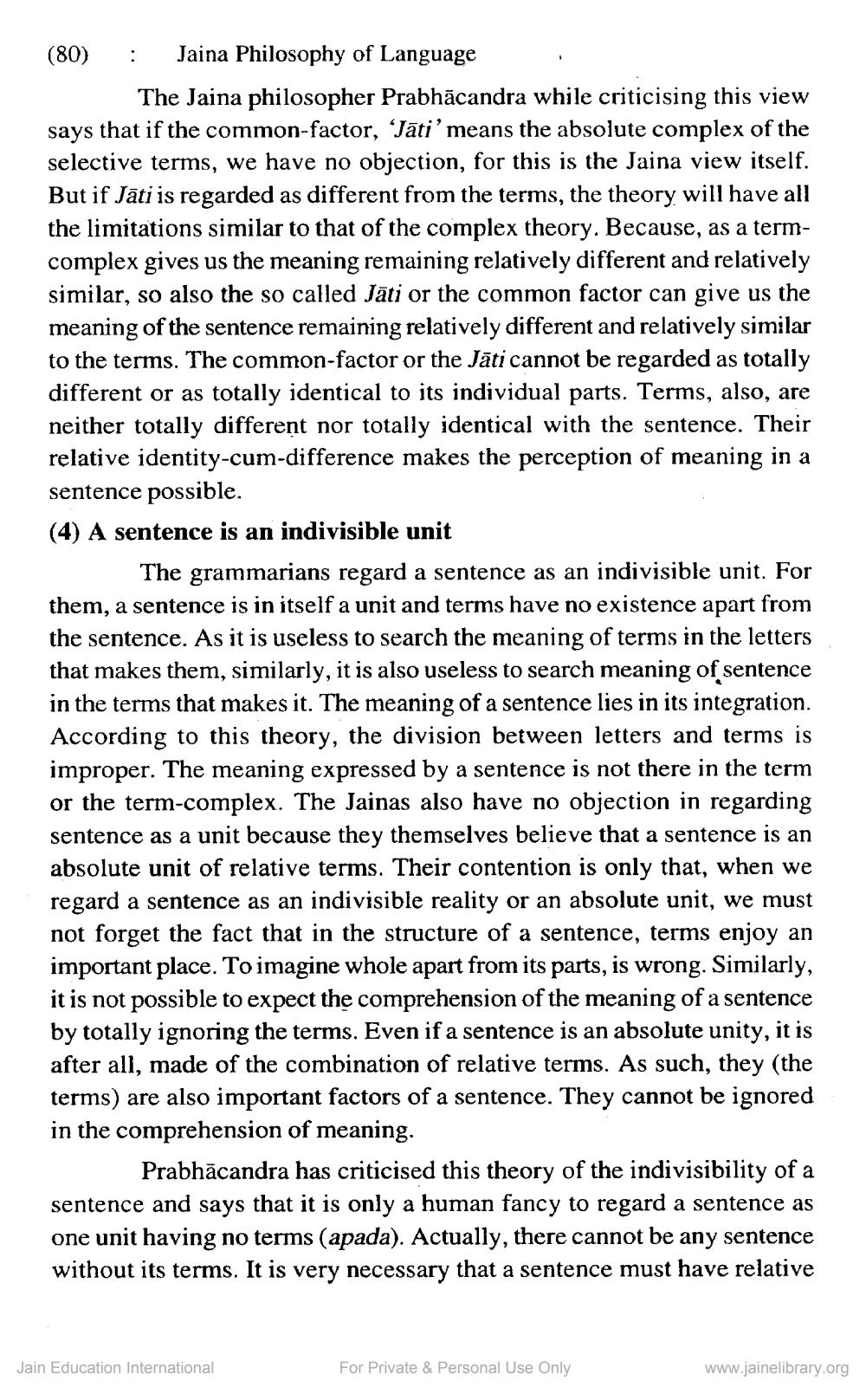________________
(80)
: Jaina Philosophy of Language
The Jaina philosopher Prabhācandra while criticising this view says that if the common-factor, ‘Jāti' means the absolute complex of the selective terms, we have no objection, for this is the Jaina view itself. But if Jati is regarded as different from the terms, the theory will have all the limitations similar to that of the complex theory. Because, as a termcomplex gives us the meaning remaining relatively different and relatively similar, so also the so called Jati or the common factor can give us the meaning of the sentence remaining relatively different and relatively similar to the terms. The common-factor or the Jati cannot be regarded as totally different or as totally identical to its individual parts. Terms, also, are neither totally different nor totally identical with the sentence. Their relative identity-cum-difference makes the perception of meaning in a sentence possible.
(4) A sentence is an indivisible unit
The grammarians regard a sentence as an indivisible unit. For them, a sentence is in itself a unit and terms have no existence apart from the sentence. As it is useless to search the meaning of terms in the letters that makes them, similarly, it is also useless to search meaning of sentence in the terms that makes it. The meaning of a sentence lies in its integration. According to this theory, the division between letters and terms is improper. The meaning expressed by a sentence is not there in the term or the term-complex. The Jainas also have no objection in regarding sentence as a unit because they themselves believe that a sentence is an absolute unit of relative terms. Their contention is only that, when we regard a sentence as an indivisible reality or an absolute unit, we must not forget the fact that in the structure of a sentence, terms enjoy an important place. To imagine whole apart from its parts, is wrong. Similarly, it is not possible to expect the comprehension of the meaning of a sentence by totally ignoring the terms. Even if a sentence is an absolute unity, it is after all, made of the combination of relative terms. As such, they (the terms) are also important factors of a sentence. They cannot be ignored in the comprehension of meaning.
Prabhācandra has criticised this theory of the indivisibility of a sentence and says that it is only a human fancy to regard a sentence as one unit having no terms (apada). Actually, there cannot be any sentence without its terms. It is very necessary that a sentence must have relative
Jain Education International
For Private & Personal Use Only
www.jainelibrary.org




